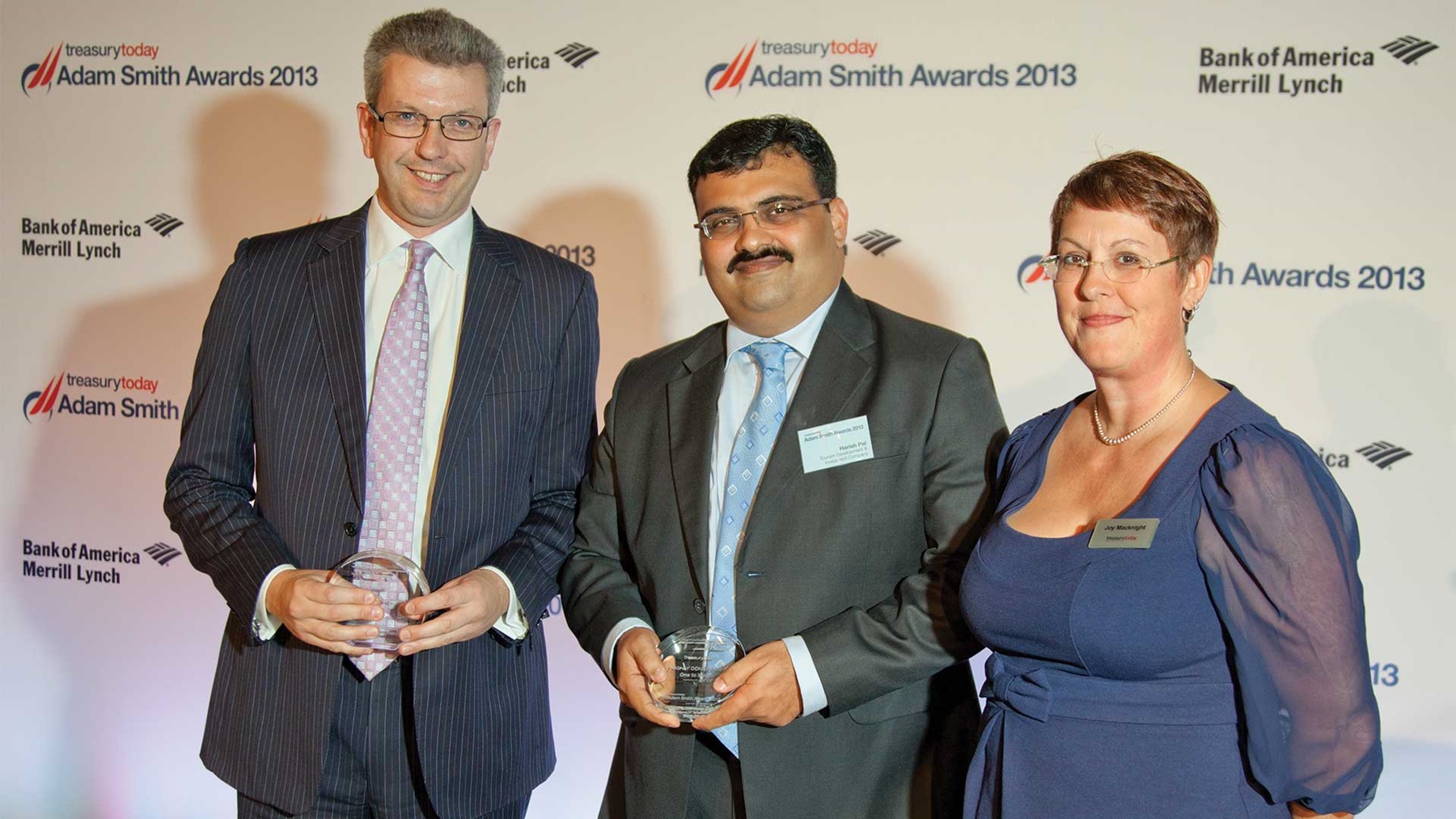
Photo of Colin Fraser, Abu Dhabi Commercial Bank, Harish Pai, Tourism Development & Investment Company and Joy Macknight.
TDIC, supported by its bank, is one of the first companies in the UAE to implement a customised, automated procure-to-pay process. The solution is based on its ERP and leverages industry best practices and innovative technology.
Harish Pai
Manager Treasury Operations, Abu Dhabi, UAE

Tourism Development & Investment Company (TDIC), established in 2006, is a master developer of major tourism destinations in Abu Dhabi, the largest of the seven emirates which make up the United Arab Emirates (UAE), and a key contributor to its economic and cultural progress. The company is behind some of Abu Dhabi’s most prestigious projects, including Saadiyat Island.
in partnership with

Tourism Development & Investment Company (TDIC), established in 2006, is a master developer of major tourism related infrastructure and destinations in Abu Dhabi, UAE. The company is behind some of the most prestigious projects undertaken in Abu Dhabi, including Saadiyat Island which will house the world’s largest concentration of premier cultural institutions such as the Zayed National Museum, the Louvre Abu Dhabi and the Guggenheim Abu Dhabi. TDIC is a critical contributor towards Abu Dhabi’s vision 2030, the ambitious plan for economic and cultural development of the emirate.
Government funding for infrastructure and other development projects in Abu Dhabi requires its entities to maintain the funds/grants for each project separately to avoid comingling of funds and enable accounting and accurate reporting to be produced at a project level.
As Harish Pai, Manager Treasury Operations explains, “at TDIC, we have managed this requirement through a separate call account structure for each project, with interest tiers set at which interest compensation is accrued daily and paid monthly. Currently we have 99 principal protected call accounts with same day access to funds. With a high volume of payments from various project account, the need to demonstrate a high degree of accountability for payments and cash held for each project and also faster execution of payments to vendors, TDIC recognised that improvements needed to be made to its existing payment processes.”
The process was entirely manual, with up to 15 separate physical documents required to support each payment. Each invoice took a minimum of ten days to process, with no ability to track the status of each payment. Payment cycles were performed twice each month, potentially resulting in late payment, and therefore possible damage to supplier relationships and potential risk to the supply chain.
TDIC was implementing a new ERP as part of a wider government initiative for financial optimisation. While this incorporated some existing workflow tools for payments, such as automatic generation of payment messages, it did not fully support TDIC’s payment approval requirements or tracking on payment progress. Consequently, the company made the decision to customise and enhance the payment functionality available through its ERP and integrate the solution with its partner bank, Abu Dhabi Commercial Bank (ADCB).
Benefits include:
- Cost savings.
- ROI.
- Productivity gains.
- Process efficiencies.
- Risk removed/mitigated.
As one of the first companies in the region to create a customised, automated payment process, this was a major step for TDIC. The solution it implemented won considerable support, particularly as a result of the quality of the audit trail. At any point, a payments report can be produced from the ERP, with information on the maker, checker and approver on each payment. Invoices are automatically archived at an individual invoice and payment level, avoiding the need for manual archiving. The implementation proceeded smoothly with a high quality approach to project management, including extensive testing. The internal solution is now closely integrated with the company’s bank, ADCB, with transmission of new payment files every 15 minutes to ADCB’s designated encrypted host-to-host server. These are then retrieved and validated prior to payment, with prompt notification of rejections or queries, allowing TDIC to make necessary corrections without delays.
“As a result of the project, we are now in a position to implement further enhancements to our infrastructure, such as electronic bank account management (eBAM) to further automate the management of an increasing number of project accounts, as well as automated reconciliation,” says Pai.
TDIC is also considering implementing SWIFT connectivity in the future in order to standardise communication and formats, and permit greater bank neutrality. By automating and streamlining its operational processes more fully, the company is able to focus on treasury priorities such as on-going efficient management of overall liquidity and project management.